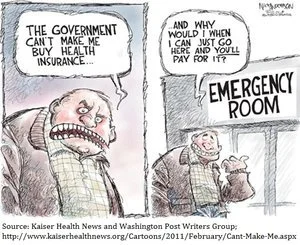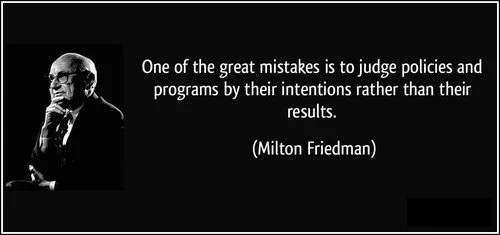EMTALA: part 2
Who pays for all this stuff????
Yeah, the gov’t not going to do that
When congress passing a law that allowed every person to have access to emergency medical care and stabilization of any emergency medical conditions regardless of ability to pay or insurance status, you would think that there would then be money set aside for the treatment of all these uninsured and underserved patients who would now access medicine through the ER. Well, you would be wrong! There is no funding behind EMTALA. The laws mandate everyone who presents to be seen and (emergency conditions) treated yet the government does not give any money to the hospitals to take care of these patients. This has become just the cost of doing business, and if your hospital has enough uninsured/non-paying patients then it will eventually go into the red with no government bail out. Maybe this leads to over-charging insured patients to cover the costs and maybe this has lead to the inflation of medical costs. Maybe.
But wait, there's More!
If you (a clinician or and ER) do not fulfill the EMTALA laws (deny care, unnecessarily transfer, etc) you will be penalized. The government will withhold Medicare funding, could lose the ability to participate (i.e. collect) Medicare, and might be fined up to $50,000 (which is not covered by your malpractice insurance, BTW). So don't do that.
What do we do now?
Do your best. That is about all I can say for making sure you uphold the EMTALA laws and stay out of trouble. This is a lot of words to say, "Be a good clinician. See every patient that comes to your ED. Stabilize every sick patient. Try not to miss any dangerous diseases." While it is good to know the laws, it is more important to know good medicine. Practicing good medicine without prejudice is the best way to start.
Beyond that, I think EMTALA has lead to a new culture in emergency medicine where patients are fully aware that it is their right to be seen by a clinician anytime they show up to the ED. No one is refused. No matter what the complaint, everyone gets seen.
EMTALA was a great step forward in the safety and equality of medical services. One of my favorite parts of my job is treating everyone with equality whether they are homeless or the prince of Dubai. I love that I never have to worry about individual reimbursement from patients I am treating, and I love being the safety net for society that other countries do not have.
What I would like to point out one of the unintended consequences of universal access. The emergency department is no longer for emergencies. That in itself is fine. I have become and expert in urgent care. However, every single patient complaint I have received has been over non-essential parts of care. Emergency departments now focus more on patient satisfaction than emergency care. If this is the way of the future then we need to evolve more along the lines of a hotel chain than a hospital.



